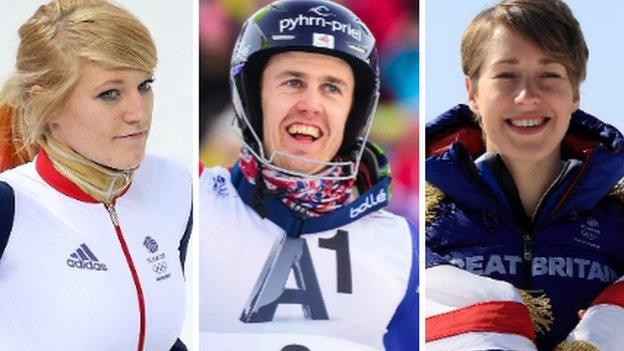Russia Winter Olympics ban: Who gets their medals at Pyeongchang 2018?
- Published
Russia - one of the historic heavyweights of the Winter Olympics - has been banned from the 2018 Games in Pyeongchang. So how could that affect the medal table?
Data analysts Gracenote have estimated 21 medals that would have been won by Russian athletes will be redistributed - although this model does not take into account that some may compete as neutrals.
Of those 21 medals, 15 would be won by nations already expected to feature prominently in the medal table. Britain's women's curling team could benefit with an extra bronze, according to Gracenote.
Projected medal table without Russia
Gracenote's virtual medal table for Pyeongchang 2018 without Russia | ||||
|---|---|---|---|---|
Country | Gold | Silver | Bronze | Total |
1. Germany | 15 | 13 | 10 | 38 (+3) |
2. Norway | 13 | 10 | 14 | 37 (+4) |
3. United States | 9 | 10 | 8 | 27 (+1) |
4. France | 9 | 7 | 7 | 23 (+2) |
5. Canada | 8 | 11 | 15 | 34 (+2) |
6. Austria | 7 | 2 | 6 | 15 |
7. Netherlands | 6 | 10 | 3 | 19 (+1) |
8. Japan | 6 | 6 | 4 | 16 (+2) |
9. South Korea (hosts) | 6 | 3 | 1 | 10 |
10. China | 6 | 1 | 2 | 9 |
21. Great Britain | 0 | 2 | 4 | 6 (+1) |
*The Virtual Medal Table by data analysts Gracenote is a statistical model based on individual and team results in previous Olympics Games, World Championships and World Cups to forecast the most likely gold, silver and bronze medal winners by country.

Twenty-five Russians were already banned for doping before Tuesday's blanket decision. And with the whole Olympic team now barred, only those Russian athletes who can prove they are clean will be allowed to compete in South Korea under a neutral flag.
Russian President Vladimir Putin has said there will be no boycott of Pyeongchang 2018, allowing Russians to compete as as 'Olympic Athlete from Russia' under a neutral flag - provided they can satisfy strict criteria to prove they are 'clean'.
Here are some of the stars who now might not appear at next year's Games.
Figure skating - Evgenia Medvedeva
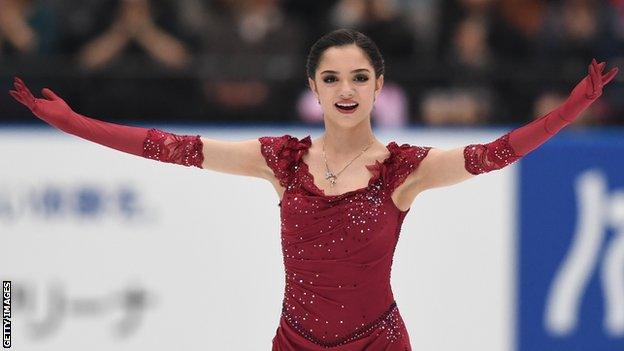
Evgenia Medvedeva is unbeaten in two years and Pyeongchang would be her Olympic debut
At the past six Winter Games, Russian figure skaters won 14 of the 26 gold medals available and occupied 26 of the 75 podium places.
Gracenote's head of analysis Simon Gleave said: "Figure skating is the key sport at the Games which will miss Russia - including the unified team - as they have won 57% of all gold medals and 36% of all medals in the sport since 1992."
That supremacy had looked set to continue in the pairs with Evgenia Tarasova and Vladimir Morozov, plus Ekaterina Bobrova and Dmitri Soloviev in the ice dance.
Two-time reigning women's singles world champion Evgenia Medvedeva is recovering from a broken foot, external - but the 18-year-old is unbeaten in two years and was a firm favourite to win gold on what would be her Olympic debut.
Alina Zagitova was another podium contender - aged just 15 she won the Cup of China, external on her Grand Prix debut in November and followed it up with victory in the Internationaux de France.
Medvedeva and Zagitova were 14 and 11 respectively during Sochi 2014 and there are no figure skaters in the 25 Russian athletes banned from the Olympics for life.
Short track speed skating - Viktor Ahn
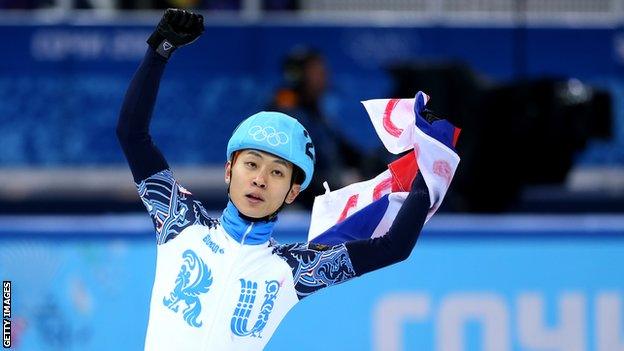
Viktor Ahn celebrates winning gold in the short track men's 500m at Sochi 2014
The most intriguing reception to a Russian athlete in Pyeongchang would quite possibly have been reserved for one that was born in South Korea.
Ahn Hyun-soo claimed three golds and a bronze for his native country at Turin 2006 but failed to qualify for Vancouver 2010 and fell out with the Korean Skating Union (KSU).
He subsequently took Russian citizenship, changing his name to Viktor Ahn and making a stunning comeback in his adopted country at Sochi 2014 by winning another three golds and a bronze.
In reaching eight overall medals, he drew level with Apolo Ohno as the most decorated Olympic short track speed skater, while his six golds are more than any other athlete in the sport.
At 32, he had planned to retire after Pyeongchang and said he expected to be booed, external at the Games, even though most of the Korean animosity over his defection is directed at the KSU., external
Absolution? Jeers? More medals? We might never know.
Speed skating - Pavel Kulizhnikov
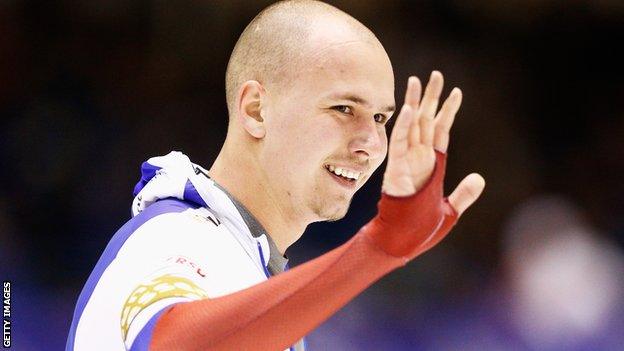
Like Russian tennis player Maria Sharapova, Pavel Kulizhnikov tested positive for meldonium after the substance was outlawed
Speed skater Pavel Kulizhnikov - a gold medal favourite for the 500m and also expected to win a medal in the 1000m - could have had his Olympic bid ended sooner than Tuesday's vote.
The 23-year-old missed Sochi 2014 during a two-year ban for testing positive for methylhexanamine, which also led to him being stripped of his 2012 World Junior Championship 500m title.
After a successful return to the sport, he then tested positive for meldonium, external in March 2016 and faced a potential lifetime ban for a second offence.
However, he was cleared after the World Anti-Doping Agency announced it was not clear how long the drug took to leave the body and the concentration of meldonium in Kulizhnikov's sample was below the threshold.
That temporary ban over, Kulizhnikov has looked strong this season, winning 1000m gold in a track record time at the World Cup event in Heerenveen last month.
Luge - Roman Repilov
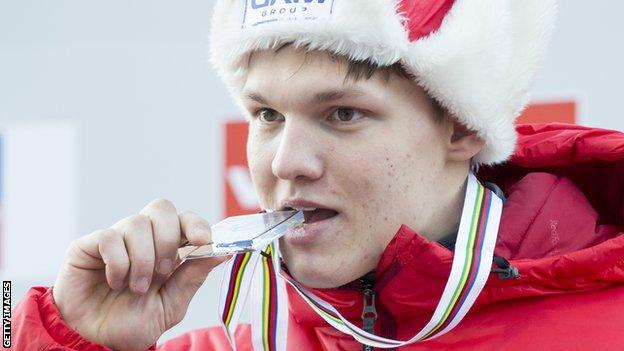
Roman Repilov would be looking to prevent Felix Loch winning a third straight luge gold at Pyeongchang
German Felix Loch has dominated men's luge since becoming the sport's youngest Olympic champion at Vancouver 2010 aged 20, going on to defend his title at Sochi 2014.
The 28-year-old has won 12 World Championship gold medals across three events and claimed five successive World Cup titles from 2012 to 2016 - a run that was ended in February by 21-year-old Russian Roman Repilov.
Repilov is a two-time junior world champion and also won silver in the singles and sprint events at the World Championships in Iglis, Austria in January, with Loch failing to make the podium in both.
Loch is back on top of the World Cup standings after four events this season, with another Russian - European champion Semen Pavlichenko - second as it stands.
Without Repilov and Pavlichenko in Pyeongchang, it appears reigning world champion Wolfgang Kindl of Austria would be the most likely man to prevent Loch winning a third successive gold.
Cross country - Sergey Ustigov
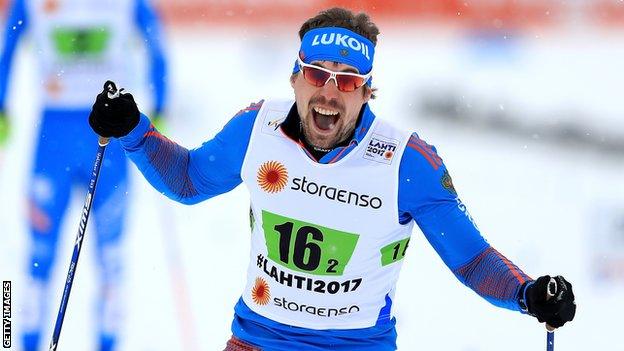
Sergey Ustiugov wins a gold at the World Ski Championships 2017
One of the biggest talents in cross-country skiing, Sergey Ustiugov won two gold and three silver medals at the Nordic World Ski Championships in Lahti, Finland in February.
Notable for his versatility, the 25-year-old would be a contender in both the long distance and sprint categories at the Games.
If he does not compete, expect Canada's Alex Harvey and Norway's Martin Johnsrud Sundby to battle for the 30km skiathlon and 50km freestyle, while Federico Pellegrino will be favourite to win sprint and team sprint gold for Italy.
Russia will now not be able to defend their biathlon relay title, with the potential absence of Anton Shipulin likely to benefit France's Martin Fourcade as he looks to add more golds to the two he won at Sochi.
Ice hockey - Russia men's team
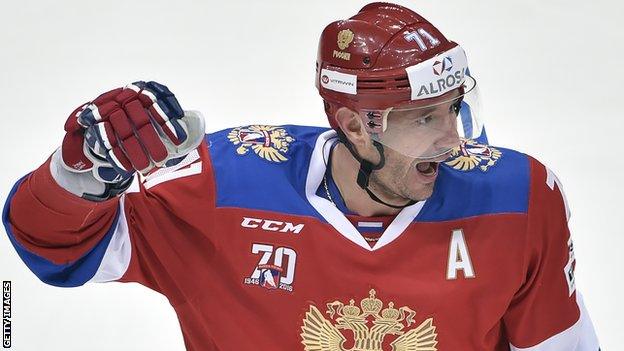
Former NHL star Ilya Kovalchuk cited the chance to play at the Olympics as one of the main factors for staying with KHL side SKA St Petersburg this year
The biggest stars in men's ice hockey were already due to miss out, after the National Hockey League (NHL) said in April it would not allow its players to compete at the Games for the first time since 1994. Club owners were unhappy at having to halt their season for the Games.
That left Russia - one of the few teams still able to field superstar players - among the favourites for gold, with its Kontinental Hockey League (KHL) regarded as the strongest domestic league outside the NHL.
While a team could compete under a neutral flag, early reports are that the Russian government is not keen on that option, according to BBC Sport's Seth Bennett.
And Russia's ban could also further weaken the depleted squads of two-time reigning champions Canada and rivals USA, with the KHL suggesting it could withdraw all its players, external of all nationalities in protest.
Exactly who will be on the ice remains unclear, but - with Canada and the USA now perhaps having to resort to calling up out-of-contract veterans and college players - the standard is sure to be lower than previous Games.
The women's competition should be unaffected, with Canada and USA the favourites.
- Published6 December 2017
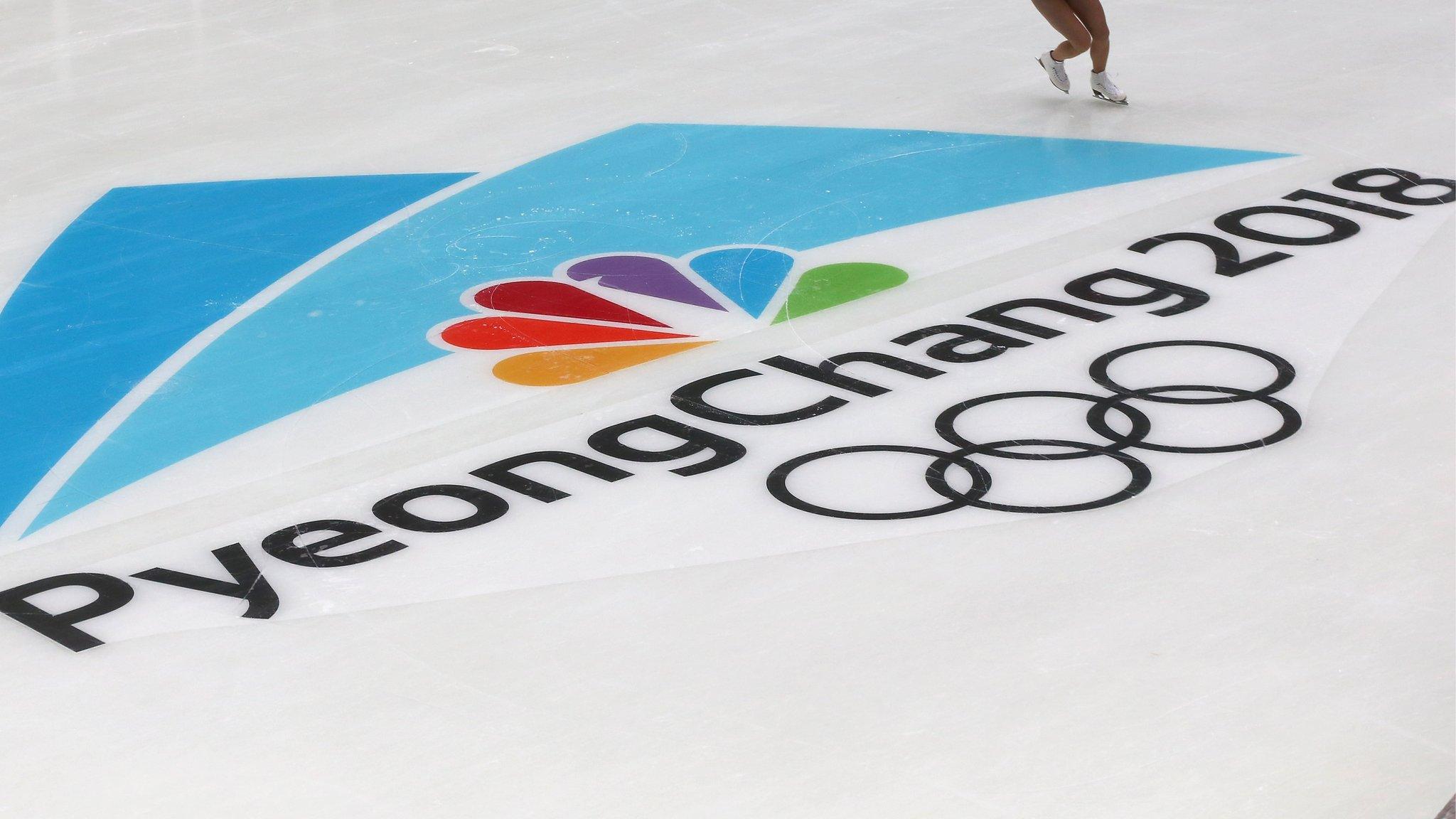
- Published5 December 2017
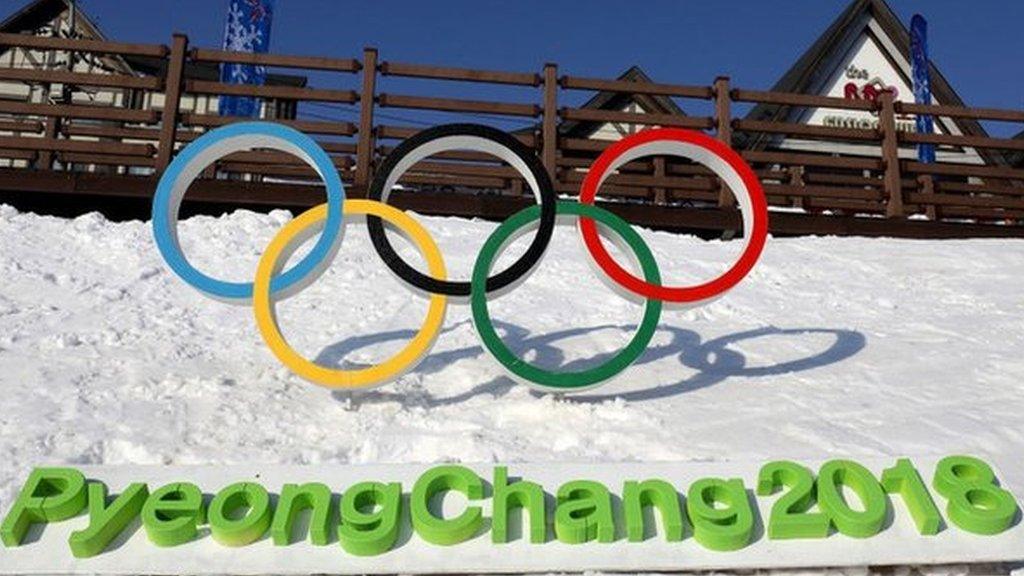
- Published1 December 2017
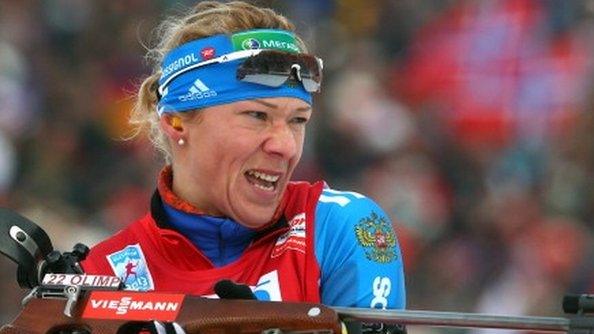
- Published8 February 2018
